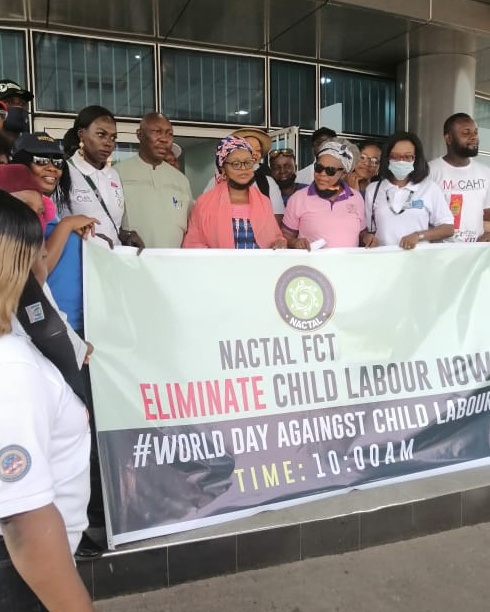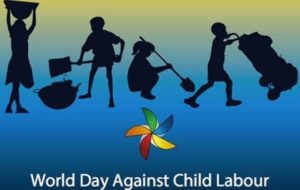Child Labour and the Law
June 12 marks Democracy day in Nigeria. Across the globe, the day is set aside to raise awareness for an end to Child Labour in every corner of the earth. This special day was first observed in 2002 by the International Labour Organisation (ILO), a United Nations agency.
The 2021 World Day Against Child Labour is themed 'Act Now, End Child Labour’.
For collaborative action to #End this, GPI Abuja joined the FCT Network Against Child Trafficking, Abuse & Labour (NACTAL) on June 10 on a walk for awareness-raising from Unity Fountain to the Ministry of Women Affairs, Abuja. The Network was received by a representative of the Hon Minister Dame Pauline Tallen.
WHAT IS CHILD LABOUR?
Child labour refers to the exploitation (local parlance – monkey dey work bamboo dey chop) of children through any form of work that deprives children of their childhood, interferes with their ability to attend regular school, and is mentally, physically, socially and morally harmful.
WHAT KIND OF WORK IS CONSIDERED AS CHILD LABOUR?
Not all work performed by children is child labour. Child labour is defined by international standards as work that is hazardous, demands too many hours, or is performed by children who are too young.
Most percentage of children in child labour can be identified around us – from domestic helps to labourers to street beggars, hawkers etc
ARE YOU A PERPETRATOR?
Cross-examine yourself...
Do you have a minor in your home/establishment:
- working without being paid directly?
- not having time to play and being a child?
- whose work activities are beyond their capabilities or/and are being done in an unsafe environment?
- deprived of education and/or economic skills to aid a smooth transitioning into adulthood?
If yes to either of the options, you are a Perpetrator of #childlabour
A third of children in child labour are completely outside the education system, and those that do attend perform poorly.
What laws are there to support eradicating this exploitation?
CHILD LABOUR LAWS
International Laws
- According to the ILO minimum age convention (C138) of 1973 (Date of entry into force: 19 Jun 1976), child labour refers to any work performed by children under the age of 12, non-light work done by children aged 12–14, and hazardous work done by children aged 15–17. Light work was defined, under this Convention, as any work that does not harm a child’s health and development, and that does not interfere with his or her attendance at school. Nigeria ratified the ILO C138 Convention of 1973 on 02 Oct 2002 with 15 years as the specified minimum age.
- Another international law ratified by Nigeria is the Convention on the Rights of the Child (CRC) adopted by the United Nations in 1990. Article 32 of this convention addresses no exposure of children to exploitative and hazardous work. Nigeria ratified the CRC in 1991.
Regional Laws
- The African Charter on the Rights & Welfare of the Child (also called the ACRWC or Children's Charter) adopted by the African Union in 1990 (then called Organisation of African Unity OAU) came into force in 1999, signed the same year by Nigeria and ratified on 23 July 2001.
The Children’s Charter originated because the member states of the AU believed that the CRC missed important socio-cultural and economic realities particular to Africa. Nigeria gave legal consent to the CRC and ACRWC by adopting the Child’s Right Act (CRA) on 02 May 2003.
National Law - The Child's Right Act
- Part III Section 28 of the Nigerian Child's Right Act, 2003 captures the Prohibition of Exploitative Labour with fines in thousands of naira to five years jail term depending on the subsection contravened. - Ignorance is no excuse for the #law #ActNow
Written by:
Loretta Ofure ENOFE-LAUREL

